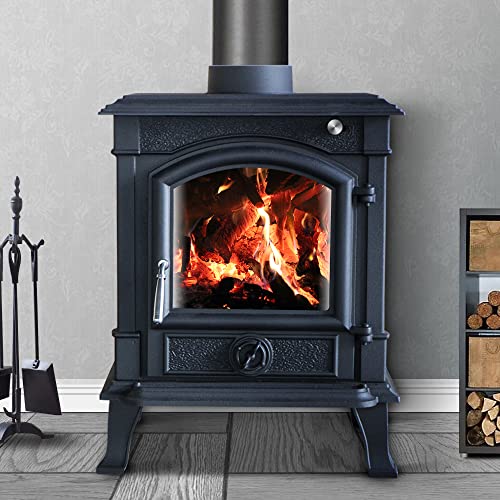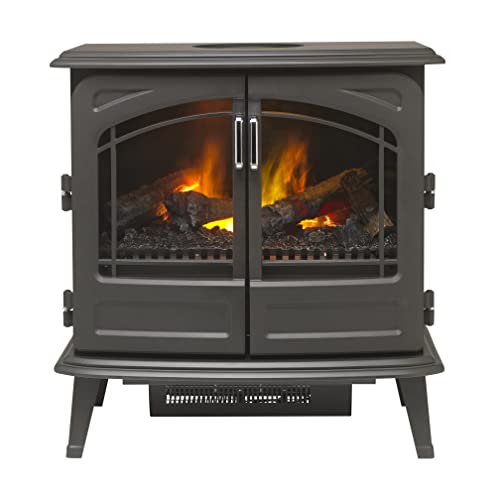Stoves Electric Tools To Ease Your Daily Life Stoves Electric Trick Th…
페이지 정보
작성자 Ray 작성일24-06-03 16:55 조회687회 댓글0건관련링크
본문
 Why Stoves Electric Are the Green Choice
Why Stoves Electric Are the Green ChoiceA Brooklyn co-op has replaced 49 gas stoves including radiant and induction models, with electric ones. The switch will reduce the cost for the co-op and will eliminate expensive gas line repairs, inspections and Local Law 97 requirements.
 In contrast to gas stoves, electric stoves release no carbon dioxide or other harmful emissions while operating. The energy used to power your electric stove comes from renewable sources like wind or solar.
In contrast to gas stoves, electric stoves release no carbon dioxide or other harmful emissions while operating. The energy used to power your electric stove comes from renewable sources like wind or solar.They are safer
Many homeowners were reluctant to switch their gas stoves to electric ones in the past. This fear is a result of the hysteria created by pundits and politicians who claimed that government bureaucrats were planning to take gas stoves from their walls. However, the reality is that there are a lot of advantages to switching to electric over gas. They include a sleek design and a lower price at the start. They are also easy to clean and energy-efficient.
According to consumer reports gas stoves emit pollutants that can be harmful to the health of humans. These pollutants can cause irritation to the airways and can trigger asthma, especially for children. They also contribute to the greenhouse gas emissions and outdoor pollution. Gas stoves are now a source of concern, and some local governments have banned their use for new construction. In the end more people are choosing to install electric stoves in their homes.
Gas stoves are more costly to run than electric stoves, because they require gas pipes and are not as efficient. Additionally, they can be susceptible to breakdowns and require regular maintenance. On the other hand, electric stoves offer greater reliability and are energy-efficient. They can also be used during power outages and have a more precise temperature control. Additionally, they are easier to clean than gas stoves as they don't have grates that can be blocked by food particles.
It is ultimately up to the individual homeowner to decide on the kind of stove they would like to use in their home. It is important to remember that electric stoves are the most popular. The decision should be made by the individual's tastes and the home's configuration.
Electric stoves come in three varieties including glass-top, coil-top and induction. The two first types are identical in that they use 120 voltages of electricity to heat the burners. However induction stoves differ from conventional electric stoves because they utilize magnetic technology to heat cookware instead of metal coils. While they are less energy-efficient than coil stoves, induction stoves have more expensive prices.
They are more efficient
The switch from gas to an electric stove has many advantages, including increased efficiency. The initial cost is higher, however, electric stoves can save money over time due to their lower operating costs. In addition, they have a smaller carbon footprint. This makes them an excellent option for green homes.
The way stoves electric make use of energy is also more sustainable than a gas stove. While a gas stove makes use of natural gas, which can be obtained from the process of fracking the electric stove utilizes electricity, which is produced from a variety renewable sources, including wind and solar power. Additionally, electric stoves do not emit any of the combustion byproducts gas stoves emit.
The click, hiss and glow of the blue flame might still be appealing to some cooks. However, it comes with hidden costs, both for humans and the environment. A variety of studies have confirmed that natural gas stoves can be detrimental to human health and the environment. Luckily, top tier chefs such as Tu David Phu are turning to electric stoves and urging others to join them.
The energy produced by the gas stove is responsible for the emissions that trap heat, which can cause climate change. This is due to the fact that natural gas has to be extracted from the ground and during the process it releases methane into the air. In addition, methane leaks occur during every stage of the supply chain from production to delivery.
When cooking on a gas stove and the chemical combustion products of natural gas burn in the air, releasing ultrafine particles and gases into the air. These substances can cause irritation and increase asthma symptoms in children. Additionally, the combustion of gas creates nitrogen oxide, which causes respiratory problems and can be toxic if inhaled.
An electric stove, on the other hand it does not release these chemicals into the air. Electric stoves are powered by coal, but advances in solar and wind energy make it an environmentally sustainable option. Furthermore, a new generation of electric cooktops is efficient enough to not only lower household expenses however, they also reduce your carbon footprint.
They are more affordable
In general electric stoves are generally cheaper than gas ones. They are less expensive upfront and also have lower operating costs, thanks to their powerful power transfer technology. They can also be used in the event of an outage. They are also much safer to use since they operate with burner surfaces or heated coils instead of open flames. This feature is particularly useful in households where children could be lured by knobs or to put their hands on hot areas.
Another benefit of an electric stove is that it's simpler to clean. Instead of having multiple grates, they have a single, smooth surface that's easy to clean. Additionally, you can gauge the heat on dials so that you are aware of the exact temperature you want to cook. This could be a disadvantage as it may take some time to adjust to the level of heat.
Gas stoves can also emit pollutants that could be harmful to the health of people. Although the gas industry argues that these emissions are safe but federal agencies are looking into stricter regulations to lessen their impact on the quality of indoor air and climate change. These possible changes could result in a ban of gas stoves in the future.
Gas stoves require an electric line to function, and a lot of homeowners don't have one. While it's possible to install an entirely new one however, it can be expensive and time-consuming. In contrast, electric wood stove stoves just require a power outlet which the majority of homes already have. This makes them an excellent alternative for older homes, as well as for those with tighter budgets.
Additionally, many people are qualified for rebates on energy-efficient electric appliances, including stoves. This program is part of the IRA's High-Efficiency Electric Home Rebate. It has not yet been launched, but it will be accessible in the majority of states by the end of the year. These rebates can make the switch to an electric cooktop less expensive for a lot of people. Electric stoves are also more affordable in the long term than gas stoves and they can cut down on household energy costs.
They are eco-friendly
In terms of reducing carbon emissions, stoves electric are the best option. Gas stoves release harmful poisons like carbon monoxide nitrogen dioxide, and benzene that are associated with health issues including dizziness, headaches, confusion, nausea and breathing problems. Furthermore, they could create indoor air pollution, which has been found to be a factor in a higher rate of asthma in children.
These issues are causing gas stoves to be replaced with more efficient electric cooktops. Electric ranges are not only cheaper to operate than gas stoves and are environmentally friendly too. Electric stoves are less harmful than gas stoves. They can be powered by renewable energy sources, unlike gas stoves that rely on natural gas. This makes them a more environmentally friendly option for any home.
Another benefit of an electric stove is its safety. They are less dangerous and emit less smoke than gas stoves because they do not have an open flame. Plus, they can cook larger items like stockpots more efficiently and evenly than a gas stove. In addition, the coils of an electric stove cool off quicker than the ones on gas stoves. This means that any stray pans and pots will not ignite and is particularly important for families with children or elderly residents in the home.
The primary reason to switch to an electric stove is that it's eco friendly. There is a fact that fossil fuels are used to power electric stove heaters stoves, but it's all that bad as you think. In fact, it is much less harmful type of energy than coal or oil. Additionally, you can get the power to run your stove with solar or wind power, both of which are renewable sources of energy.
Many cities ban gas hookups for new construction, even though the government doesn't have any regulations for the indoor air pollution emitted by gas stoves. The government offers rebates of billions of dollars to help consumers to switch to electric stoves. Electric stoves are now more affordable and popular thanks to these incentives, as well as improved green technology.
댓글목록
등록된 댓글이 없습니다.



